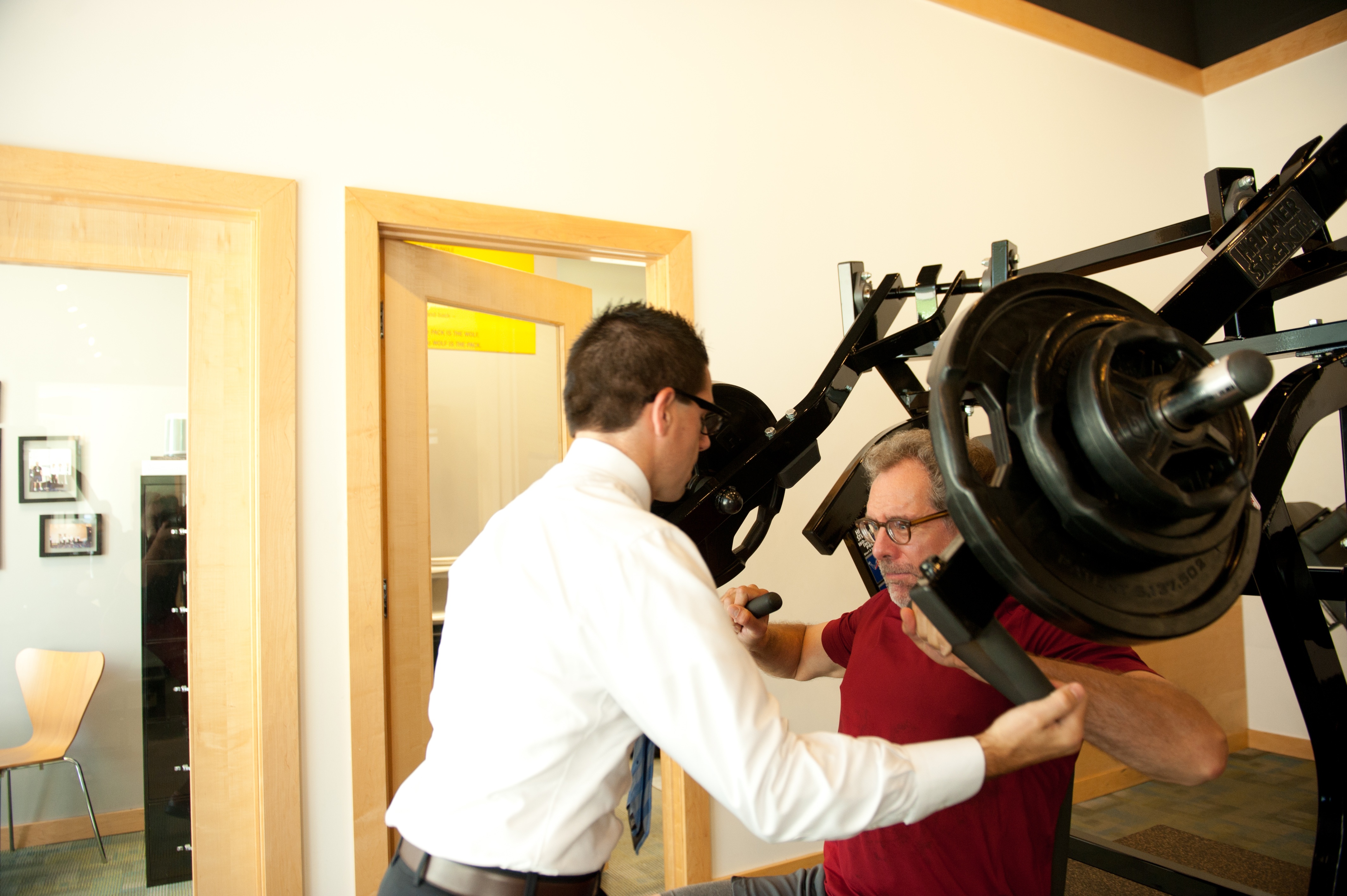New Study: Traditional Heavy Sets, Traditional Light Sets, and Break-down Sets
A brand-new pilot study conducted by Jeremey Loenneke of the University of Mississippi along with a team of Japanese scientists sought to deepen our understanding of a protocol that we at Discover Strength have employed for the better part of 8 years: The "30-rep breakdown set." To be sure, Loenneke and colleagues had no idea we utilized such a protocol.
The focus of their investigation was to determine what produced better results in terms of enhancing muscle strength, muscle endurance, and muscle size:
- (1) 3 sets of "heavy," traditional sets,
- (2) 3 sets of "light" sets or
- (3) a relatively heavy weight performed to muscle failure followed by a "breakdown set" - immediately decreasing the weight at the point of muscle failure and then continuing with the lighter weight until failure (and then repeating this process).
Loenneke's subjects continued to reduce the weight until they were using 50% less weight than what they started with. Coincidentally, the average number of reps performed was 31; ironically similar to our "30-rep breakdown." The results?
Performing the breakdown sets simultaneously improved muscle strength, muscle endurance, and muscle size; and in a fraction of the training time of performing traditional multiple sets.
This study is garnering interest from the strength and fitness world as so many practitioners and trainees alike dogmatically subscribe to the multiple set paradigm. Keep this study in mind the next time you find yourself in the thick of a 30-rep breakdown on Leg Press or Chest Press!
I’m Going to Go “Lower Some Weights”
The traditional vernacular sounds something like this, “I’m going to go lift weights.” Authors of a research study published in the European Journal of Applied Physiology suggest that this statement might not be worded as accurately as it could be. In the aforementioned study, German researchers sought to determine the effects of emphasizing the muscle contractions that are involved with lowering the weight (known as eccentric contractions) rather than the muscle contraction involved when we lift the weight (concentric contraction). Researchers concluded that emphasizing the eccentric muscle contraction, the contraction that involves lowering the weight, resulted in adaptations “in direction of a faster, stronger muscle.” Of interest in this particular study was that all of the subjects were very experienced with strength training and that the new emphasis on eccentric contractions producing marked improvements in a myriad of measures. Specifically, the authors suggest that this type of training favorably impacted what they termed “explosive strength” often used in competitive sports. Of course, this expression of strength is not subject solely to sports. Our “explosive strength” diminishes as we age and lose “fast-twitch” muscle fiber capabilities.
Functional Training for Runners, Athletes, and You
I recently had a client tell me that her physical therapist told her that she should probably avoid leg extension and leg curl as these exercises trained “muscles” but that they were not “functional.” This client is very well informed, so she knew exactly how off-base this advice was. The logical response to this physical therapist (and to all of those who espouse so-called “functional training”) is this: What causes function? The answer of course is MUSCLE and MUSCLE CONTRACTION. Here is the bottom line. The goal of strength training should be to improve the ability of a muscle to contact and produce force. Then and only then can functional ability (our ability to bend, run, swing, ski, jump, climb, live) actually improve.
Side note: To be precise, we can see improvements in performance by practicing a specific “closed-skill.” This simply means that if we practice a specific task or skill, we will get better at it. The limitation to this is that this improved performance does NOT transfer to other tasks or skills. This is a basic and long held tenet in the field of motor learning and control. Exercise should be all about changing our physiology, NOT about improving our skills.





Leave a Reply
Your email address will not be published.